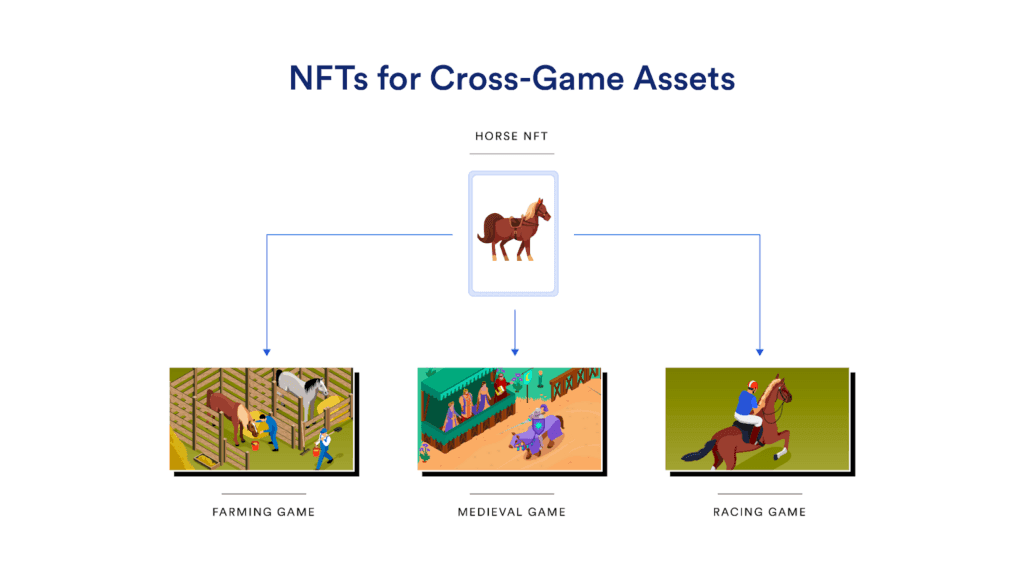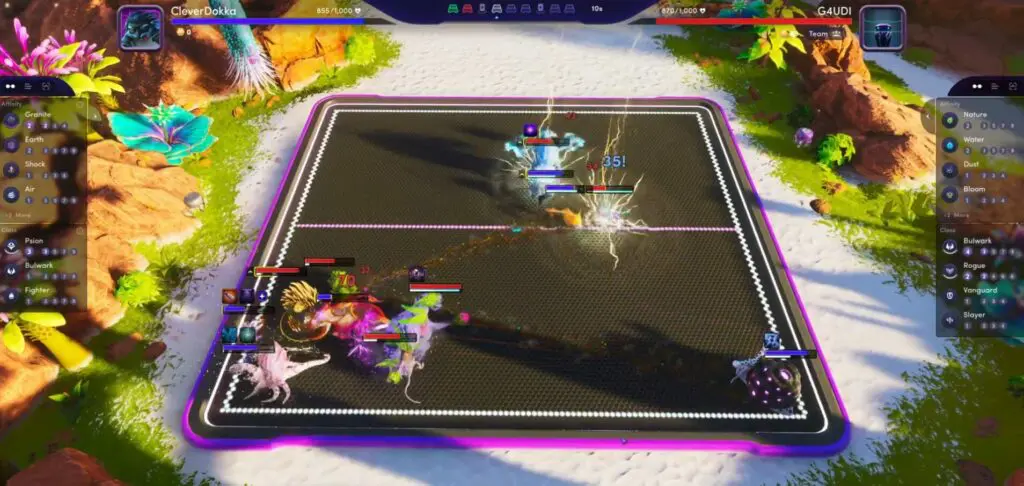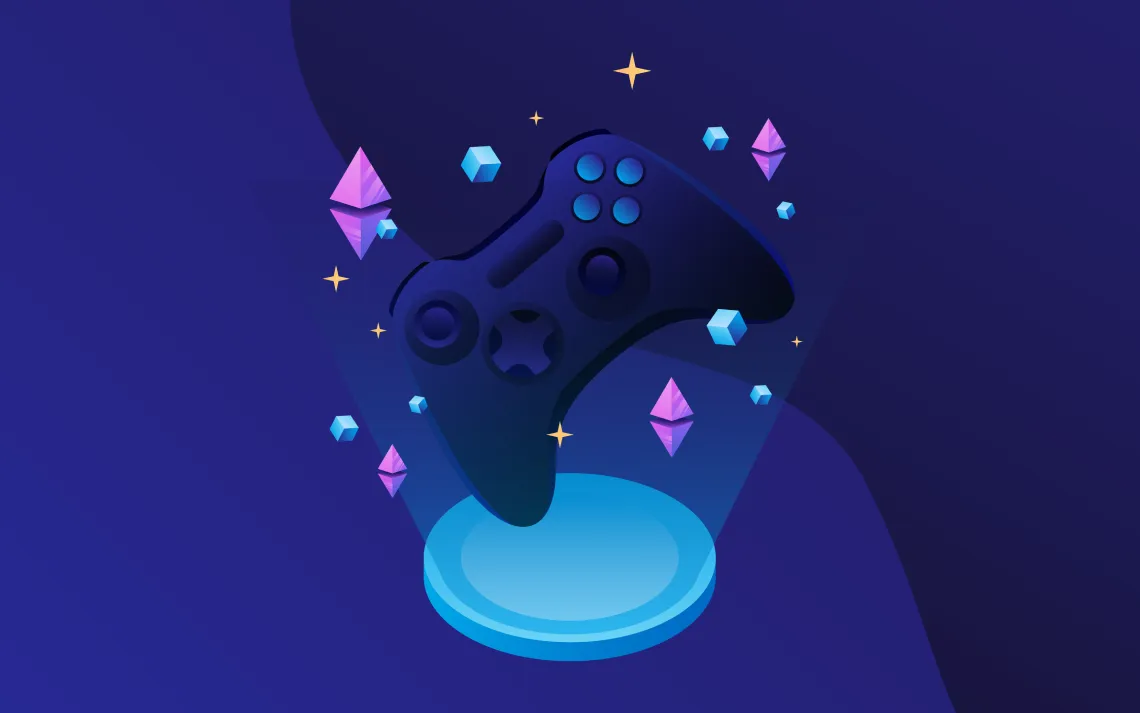Many individuals have imagined the possibility of making a living by playing video games. The concept of earning money from home while gaming may seem like a dear, but it has indeed become a possible reality, all thanks to the advancements in blockchain and NFT (Non-Fungible Token) technology.
Play-to-Earn (P2E) represents a significant development in the blockchain space, attracting major gaming studios and fostering expansive digital economies. These games offer players the opportunity to earn while they play. In this article, we'll provide a comprehensive overview of P2E games and introduce five standout titles for you to explore. Intrigued? Let's delve into the details.

What Are Play-To-Earn Crypto Games?
Play-To-Earn Model Explained
First some important definitions:
Play-to-Earn: "Play-to-Earn represents a genre of blockchain-based games that incorporate player-owned economies through the use of in-game assets represented by tokens and NFTs.”
Blockchain Game: "A blockchain game is any game that uses blockchain technology to enhance or rearchitect traditional video games."
NFT Game: "An NFT game is a video game that uses NFTs as a core part of their gameplay and economy. NFTs, or Non-Fungible Tokens, are 1-of-1 tokens generated by smart contracts and blockchain technology"
P2E games are a genre of video games where players receive rewards in the form of valuable commodities with real-world value. Unlike traditional games, where progression relies on leveling up characters, acquiring in-game items, and completing quests, challenges, and missions to gain experience points, P2E games offer tangible rewards for player participation.
However, traditional gaming experiences, such as those found in Grand Theft Auto, do not provide rewards that can be converted into real-world value. In games like Grand Theft Auto, experience points and in-game items are limited to the game environment and do not hold external value. These items are stored within closed-off data networks and are owned by the game's creators, such as Rockstar Games in the case of Grand Theft Auto.

Grand Theft Auto (GTA)
Play-To-Earn vs Traditional Gaming
In contrast to traditional gaming models, Play-to-Earn (P2E) games grant players ownership of the items they earn, allowing them full control over their assets. This unique feature is made possible through blockchain technology, marking a significant shift in the gaming landscape.
What are NFTs or Non-Fungible Tokens?
Understanding NFTs is crucial to grasping the concept of ownership in P2E games. Essentially, an NFT, or non-fungible token, is a unique piece of data stored on a blockchain. Unlike traditional currencies or assets, NFTs cannot be exchanged on a one-to-one basis due to their uniqueness.
They can be transferred and sold to other individuals, enabling clear proof of ownership. This immutability, along with the scarcity it creates, contributes to the value of NFTs in the digital realm. Consequently, in-play items accumulated by players in P2E games will be represented as NFTs, which can be traded with other players through in-game trading platforms or external marketplaces.
Additionally, many P2E games offer players native digital currencies as rewards, which can be exchanged for other cryptocurrencies on well-known platforms like Binance and Coinbase. From there, players have the option to convert these cryptocurrencies into real-world currency. With these factors in mind, let's delve into the top five P2E games you should consider trying in 2025.

What Are NFTs?
Classic Play-To-Earn (P2E) Games
(1) Axie Infinity
The first game on the list is Axie Infinity, widely recognized as one of the leading titles in the P2E sector. Axie Infinity stands out for its blend of entertainment and education, serving as a platform to introduce players to blockchain technology. In many ways, its concept mirrors that of Crypto Kitties.
Axie Infinity is a virtual pet community inspired by the immensely popular franchise, Pokémon. Within the game, players acquire and collect creatures called "Axies," which they can utilize for battles, exploration, and breeding with other Axies. Despite being rated 18+ due to its potential for earning money, Axie Infinity features graphics tailored to attract a younger audience.
In Axie Infinity, players have two avenues for earning money within the game. The first involves acquiring $SLP tokens (Smooth Love Potion) which are obtained by engaging in adventure games, and arena matches, and completing daily missions in a player vs. environment (PVE) setting. The second option entails earning the $AXS token, the game's native currency, by competing against and defeating other players in a player-versus-player (PVP) environment. Both $SLP and $AXS tokens can be exchanged for fiat currency like USD or GBP.
Remarkably, Axie Infinity has gained significant popularity in various low-income countries globally, notably in the Philippines, Argentina, and Venezuela. This surge in popularity is attributed to the game's earning potential, which surpasses the opportunities available in these countries' real-world economies.

Axie Infinity Key Art
(2) Gods Unchained
Gods Unchained is an online card strategy game developed by siblings James and Robbie Ferguson. Utilizing the Ethereum network, the game offers free gameplay, a significant factor contributing to its rise as one of the most prominent P2E games globally. Familiar to fans of Hearthstone, Gods Unchained operates on a similar premise.
In Gods Unchained, players craft decks of cards to engage in competitive online battles against other players. Each card possesses distinct stats tailored to specific scenarios, allowing players to strategize and assemble decks that complement each other, enhancing their chances of victory through synergy and creativity. As players advance and level up in Gods Unchained, they receive packs containing exclusive cards. Upon opening these packs, the cards are instantly minted as NFTs, signifying ownership.
With continued gameplay, players increase their chances of obtaining powerful or rare cards. These acquired cards can be sold to other players on the marketplace in exchange for $GODS Tokens, which can then be traded for fiat currency. The global count of Gods Unchained NFTs has surpassed 13 million, held by over 65,000 distinct asset holders. With the growing popularity of the P2E market, this figure is anticipated to escalate further in the coming months and years.

Gods Unchained Key Art and Logo
(3) Sorare
Sorare offers a blockchain-driven fantasy football (soccer) experience, allowing players to acquire, sell, trade, and manage virtual teams through digital player cards. These cards, as anticipated, are represented as NFTs, granting full ownership to players who can then trade them on the marketplace for actual currency.
To get started playing Sorare, simply access the game using your cryptocurrency wallet, and upon completing the registration process, you'll receive complimentary cards. After selecting your club's name, logo, and three preferred clubs, you can assemble your team. Once your team is set, you can partake in tournaments offering cash prizes and bonus player cards, which can be traded with other players. Additionally, players exceeding a certain point threshold in a game week are rewarded.

Sorare Key Art
(4) Star Atlas
Star Atlas is another example of a successful game built on the blockchain. Set in the metaverse of 2620, the game portrays a conflict among three factions vying for resources, territory, and political dominance. Within Star Atlas, the in-game currencies $ATLAS and $POLIS play pivotal roles.
Governed by the metaverse's economic and DeFi system, these currencies primarily facilitate peer-to-peer transactions for ships, crew, components, land, and equipment. In Star Atlas, the bulk of in-game items obtained by players will manifest as NFTs, allowing for sale and trade among fellow players. Additionally, completing challenges and missions will yield $ATLAS rewards, which can be subsequently converted into fiat currency.
The gameplay in Star Atlas extends beyond traditional boundaries, enabling users to construct entire cities and micro-economies within the game. Furthermore, players can collaborate to establish decentralized autonomous organizations (DAOs) tasked with administering specific territories.

Star Atlas Key Art
(5) Illuvium
Illuvium stands out as another popular NFT-based game, drawing considerable attention and price speculation for its in-game currency, $ILV. Illuvium presents an open-world RPG experience where players embark on the journey of collecting creatures known as Illuvials (NFTs), each possessing distinct classes and affinities. To gather these Illuvials, players traverse through an immersive fantasy realm, encountering diverse challenges and missions offering lucrative rewards.
These rewards encompass in-game items (NFTs) as well as the native tokens $ILV and $sILV. Upon acquiring Illuvials, players can engage in battles against other players by queuing up in the Ranked Arena matchmaking system. Victors are rewarded with additional prizes and the opportunity to enhance their Illuvials, thereby improving their chances of ascending the leaderboard and securing even greater rewards.

Illuvium Key Art
Final Thoughts
In traditional gaming, players typically lack direct incentives beyond the inherent entertainment value of the game itself. Often, players must pay upfront fees to access the game, and their potential for earning income is limited unless they achieve professional status as eSports competitors or gain a substantial following as streamers.
Blockchain gaming represents a paradigm shift by enabling gamers to earn income while playing, potentially revolutionizing the gaming industry in the years ahead. However, it's essential to maintain realistic expectations regarding potential earnings from P2E games. Like any financial asset, there's no definitive "average" income, particularly in the volatile realm of cryptocurrencies.



